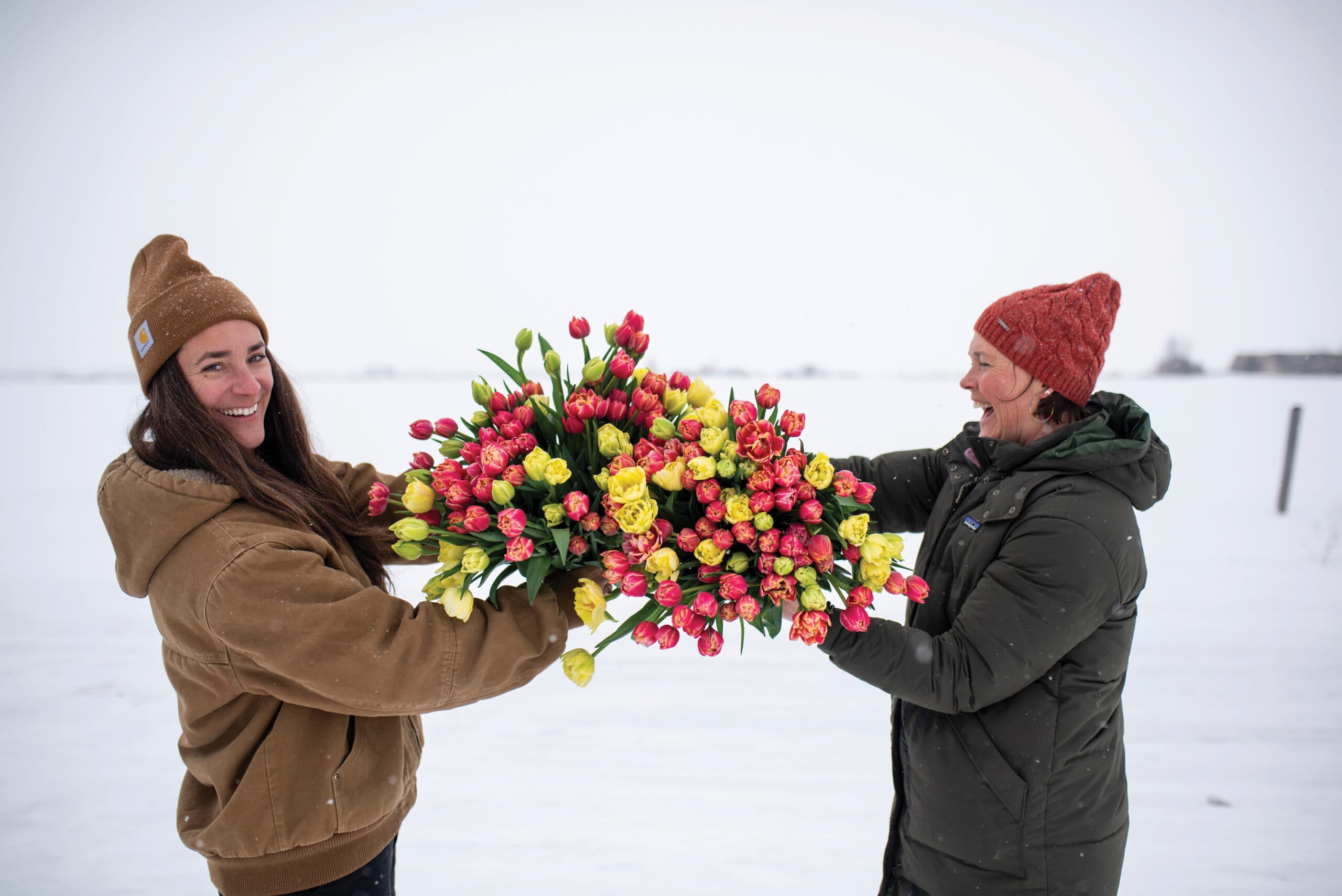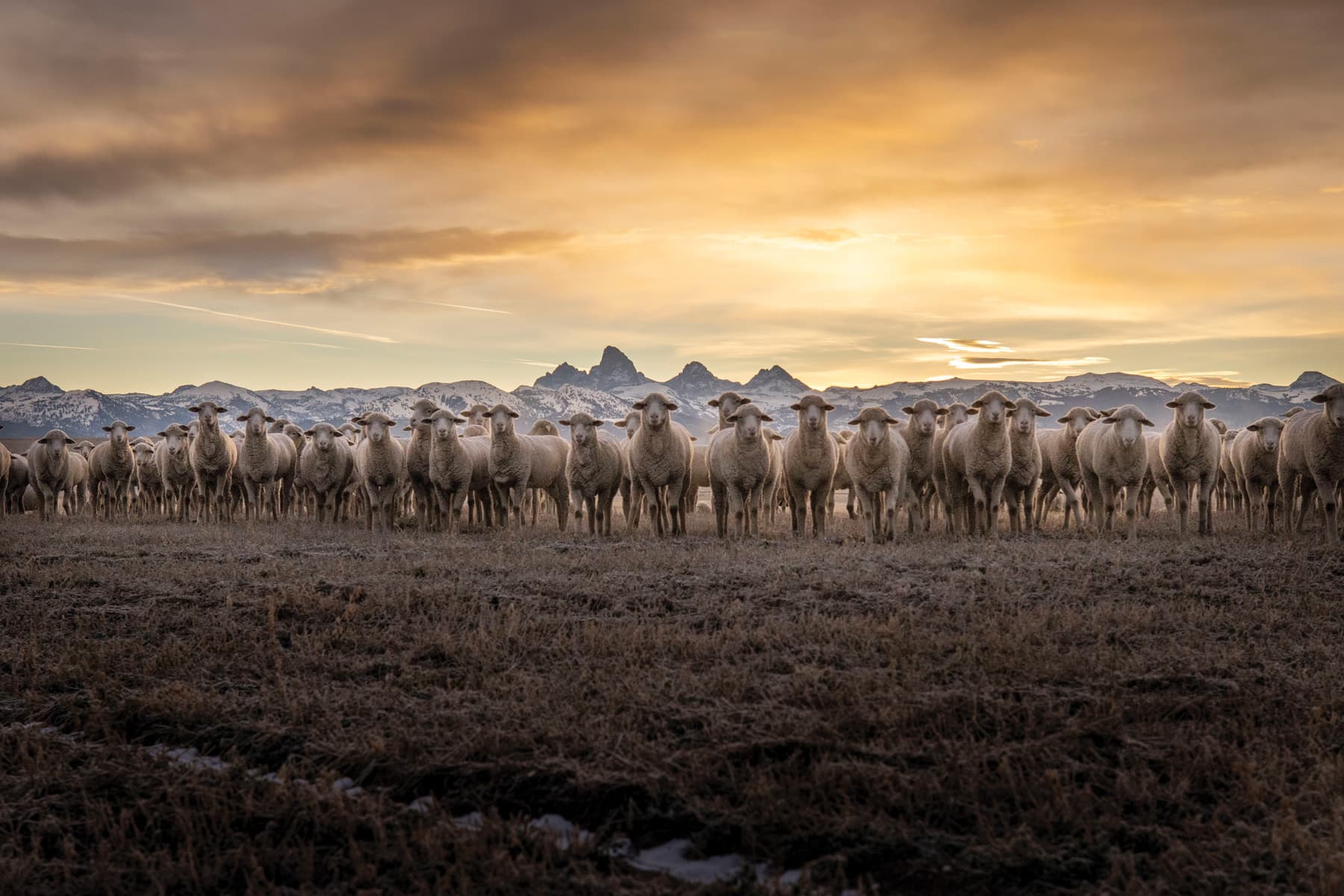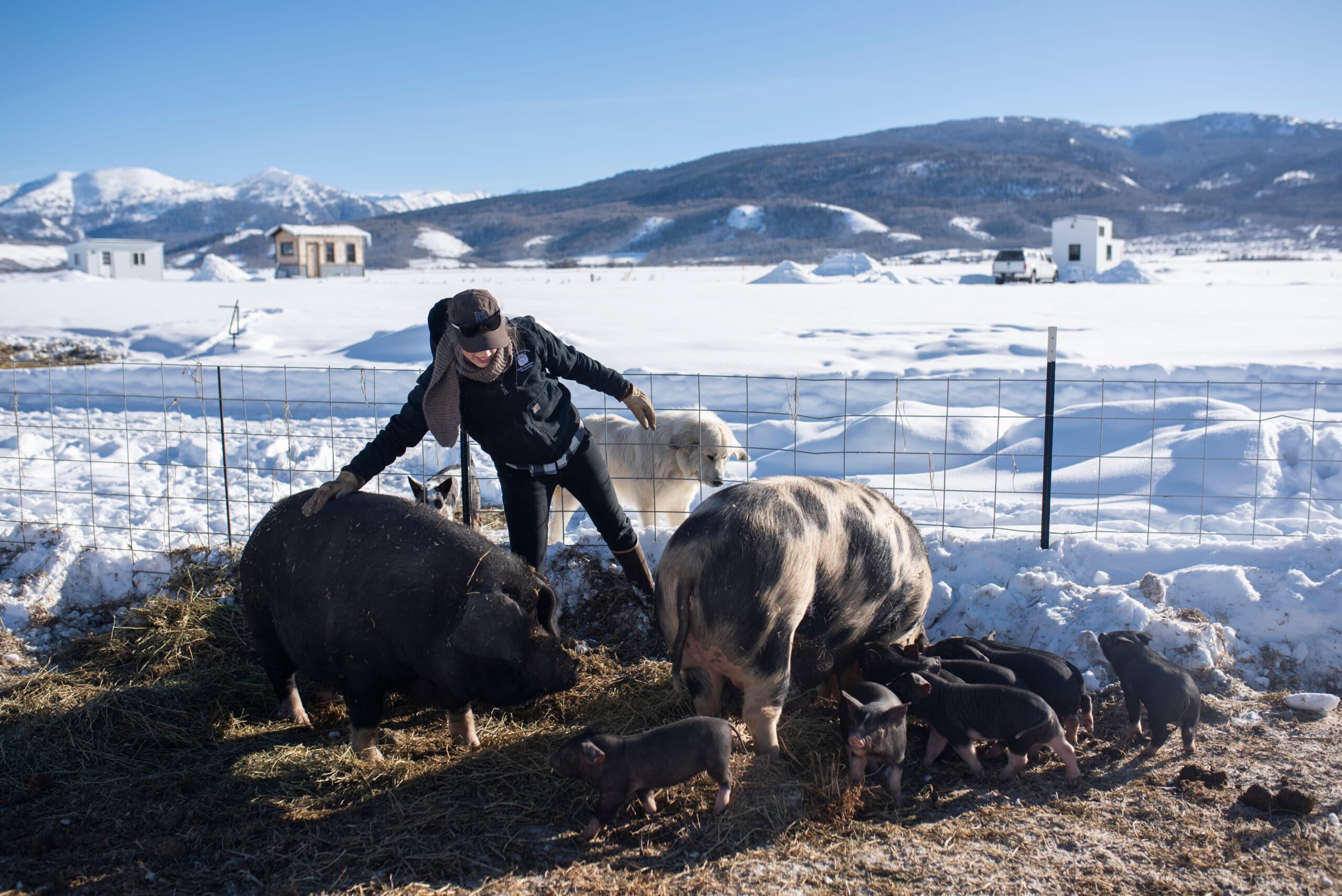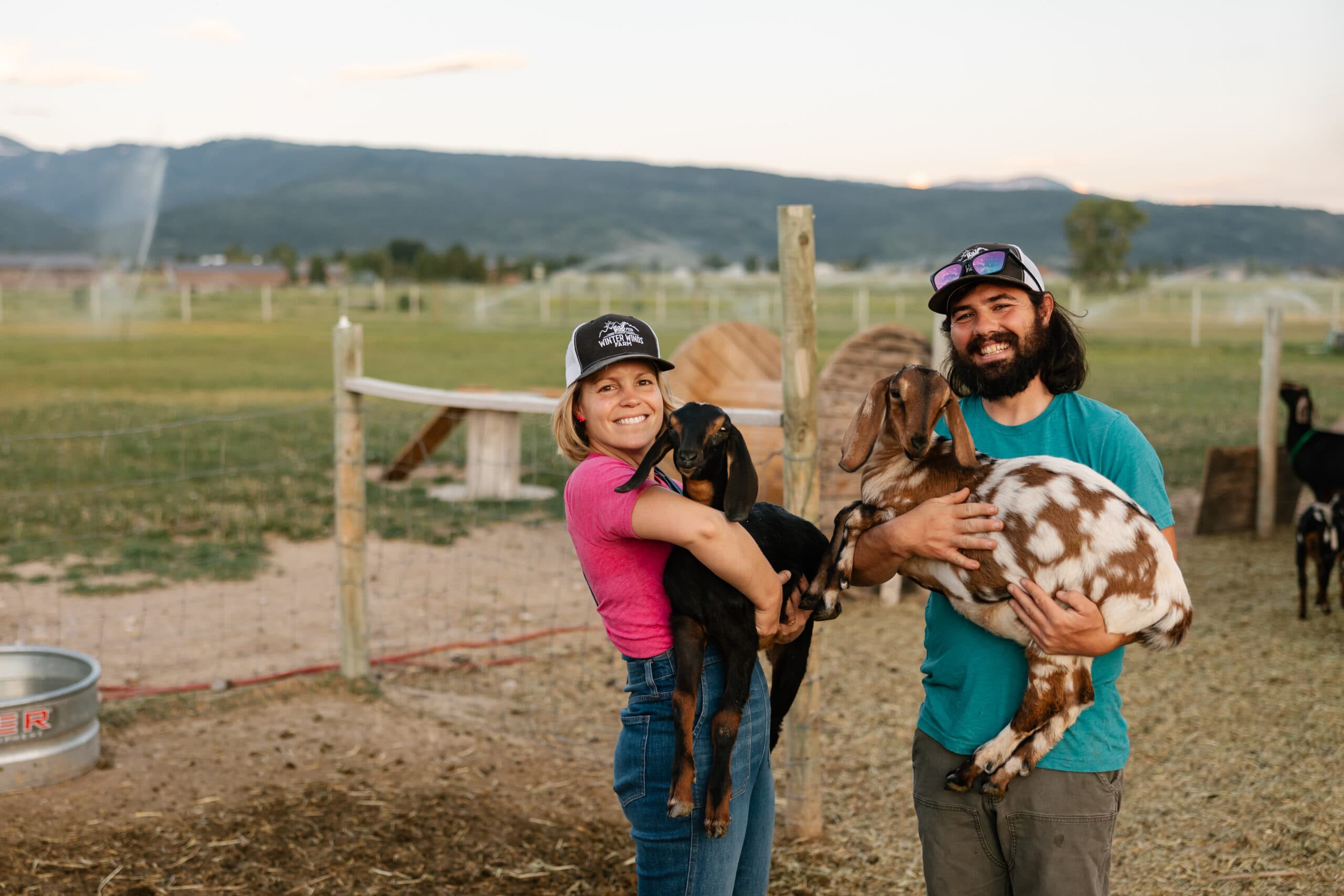Basin Flowers
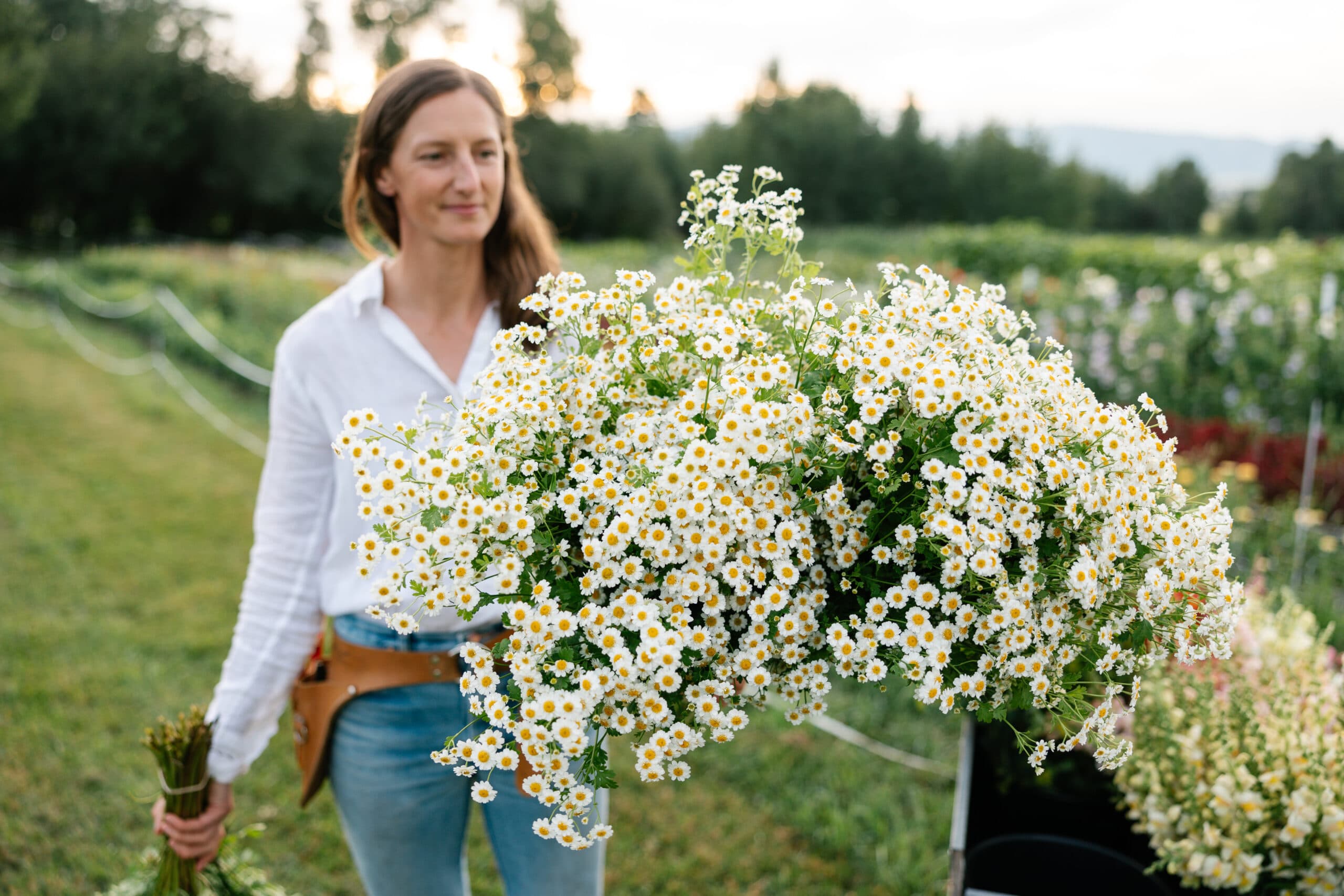
Over the last several years, the local cut-flower market has been blooming, to say the least.
This summer is Zena Wolcott-MacCausland’s second full season as the owner, operator, and grower-in-chief of Basin Flowers, one of a handful of specialty farms sprouting amidst the Teton Valley agricultural community.
“It sounds so ‘businessy,’ but compared to vegetables, there is a potential to make a higher amount per square foot,” Zena says of the practice of peddling floral over fennel. “And when I think about living in a place that is so expensive, that factors into my business plan.”
Zena’s roots run deep into the dirt as she cultivates her own rows to hoe. She is the daughter of dairy farmers from New England, where the hills roll endlessly and her parents still tap their own maple trees that seep sap each spring. The sap, which begins as a low sugar, watery substance, is boiled down to syrup. Zena says it takes about forty gallons of sap to make one gallon of syrup.
Growing up, Zena, now thirty-five, worked on local vegetable farms after tending to the dairy chores with her brother and sisters. Between pulling weeds and milking cows, her childhood worked to nourish Zena’s passion, planting the seeds that would shape her future.
“They committed their lives to it,” Zena says, remembering her parents raising cows and growing a huge garden at their home, where they would preserve “a ton of food.”
“The first time we went on vacation I was twenty-six years old,” she says, laughing. “Growing up, we didn’t go anywhere. That was their work and their passion.”
Like so many, after college Zena sojourned to the bigger mountains, following friends to the Tetons. She landed at the National Outdoor Leadership School, Teton Valley branch, before heading over to the nonprofit Friends of the Teton River.
After finding her hum in the valley, Zena also found Canewater Farm, a newly sprouted organic farm tucked into foothills on the south end of Teton Valley owned and operated by Rafe Rivers and Ansley West Rivers. The farm relocated from Georgia to the Tetons in 2019.
Zena quickly rose in the ranks at Canewater, growing vegetables, managing workers, and navigating the hustle and bustle of weekend farmers markets in the summer. It was at Canewater that her idea to tap into the flower market took root. Growing a handful of flowers one summer, she sold rustic bunches of blooms, wrapped in plain brown paper and tied with a simple string, propped next to the Canewater veggies.
And like bees around a honeypot, marketgoers wanted more.
“You can’t beat getting locally grown flowers,” Zena says. “They look better and last longer. When I look at flowers at the grocery stores, many of those flowers are coming from insane distances. And there are so many different varieties that just don’t ship well.”
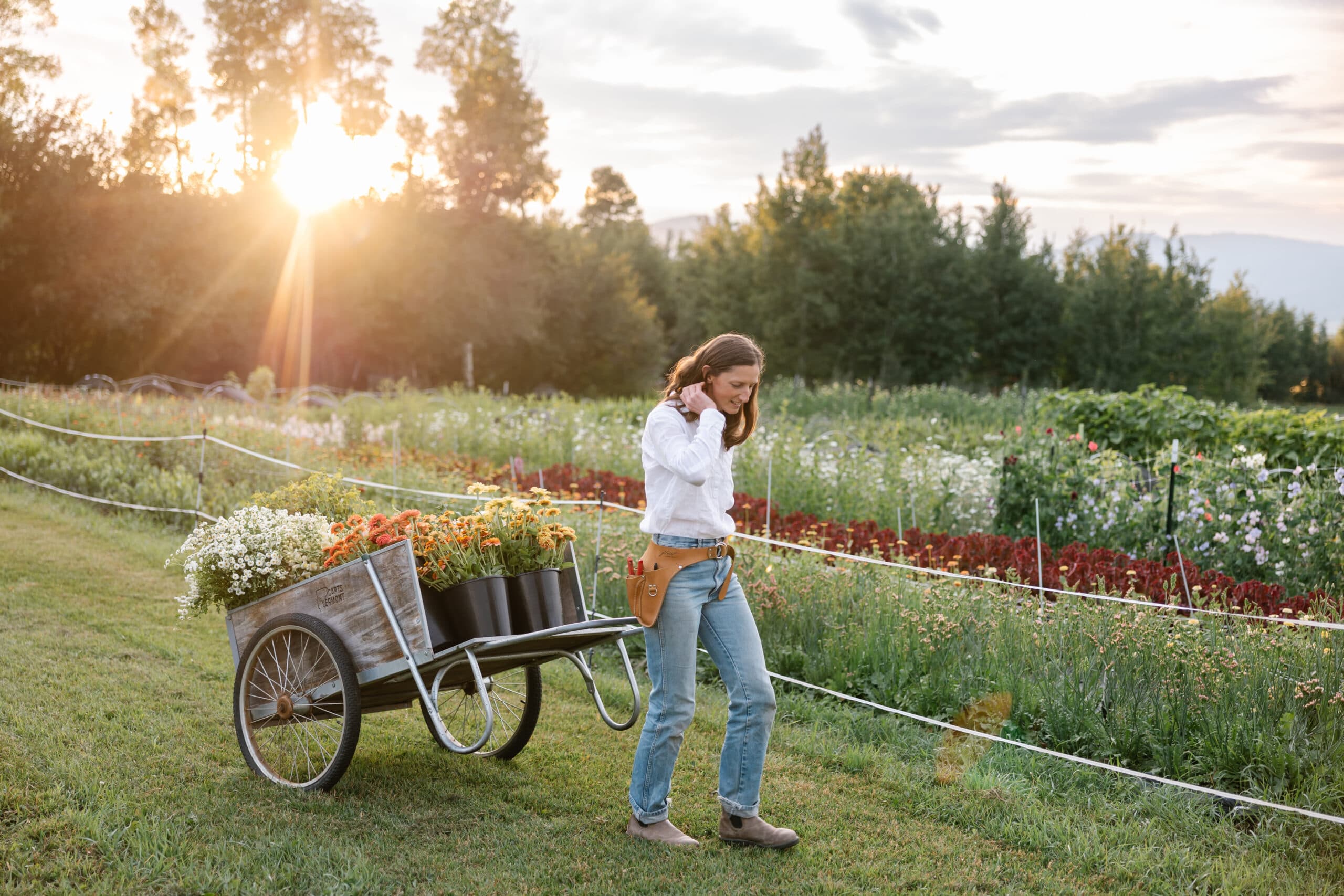
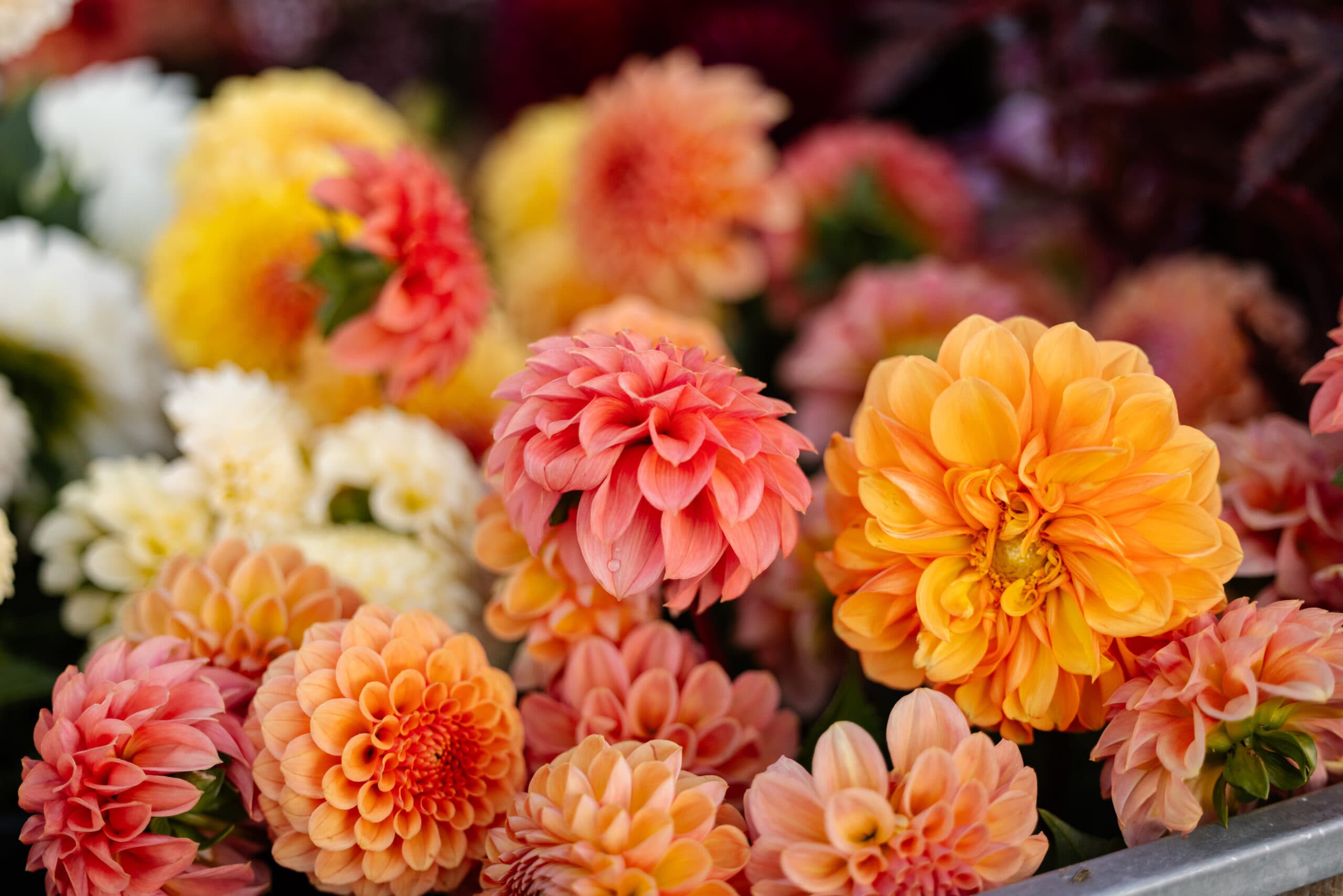


By 2023, she branched out on her own, giving life to Basin Flowers and finding her own plot—to rent, for now, from Greg Collins and Sue Miller, owners of Snowdrift Farm. Zena leases less than a quarter acre of ground that holds the rich soil where her Basin Flowers bloom.
Zena’s growing season, like for all high-elevation farmers, starts out cold. She laughs when she looks at pictures of herself in June, wearing winter clothes while she cuts the hardy tulips that are usually the first flowers to sprout for the season. Erika Eschholz, of Teton Full Circle Farm in Victor, has dubbed her the “Tulip Queen.”
“For the most part, I focus on cold-loving flowers,” she says of her choosing varieties such as bupleurum, agrostemma, and ranunculus, also known as buttercups. (You can google these varieties, or simply buy one of Zena’s bouquets and see for yourself how beautiful these cold-tolerant flowers can be.)
As the summer season warms and the sun grows higher and hotter in the mountains, Zena likes to tap into heat-loving flowers like zinnias and dahlias for mixed bouquets.
“Dahlias are total wimps,” Zena says. “It doesn’t take much for those to get frosted. But they are so beautiful and there is something special about the symmetry of them that you have to just touch them. They are not one that grows well here, but they are fun and they are a challenge.”
Peril comes from all directions. Gophers launch subterranean attacks beneath the plants. Wind and summer thunderstorms can slay the snapdragons. But the soil on the south end of the valley is rich and naturally high in organic matter, Zena says, which is critical for growing and makes the hardships worth the effort.
“I’m not certified organic, but I use organic practices,” she adds. She feeds the soil with mixes of compost and doses of soil amendments like bone meal or alfalfa.
Zena admits that she is not a floral designer and she creates her bouquets for sale in no particular order. Some-times she’ll have just a bunch of zinnias and at other times a mix of long stems and short stemmed flowers; pinks, greens, and purples mixing to offer a colorful celebration of the season.
“We’re a small, tight-knit community of growers,” Zena says of the flower-
farming community in Teton Valley. “The market is expanding with more people moving here and for flower-growers, we have a niche that we can tap into. We as farmers are more collaborative than competitive.”
Zena’s flowers can be found at MD Nursery in Driggs, at the Aspen Market and Persephone in the Westbank Center on the Teton Village Road north of Wilson, at Persephone Bakery and Cafe just off the Town Square in Jackson, and at the Jackson Hole Farmers Market in the summer. She also sells to cut flower farms and florists that do events like Red House Flowers in Victor. She plans to add more local outlets this summer; stay tuned for location details. As for the future? “It’s growing,” Zena says.
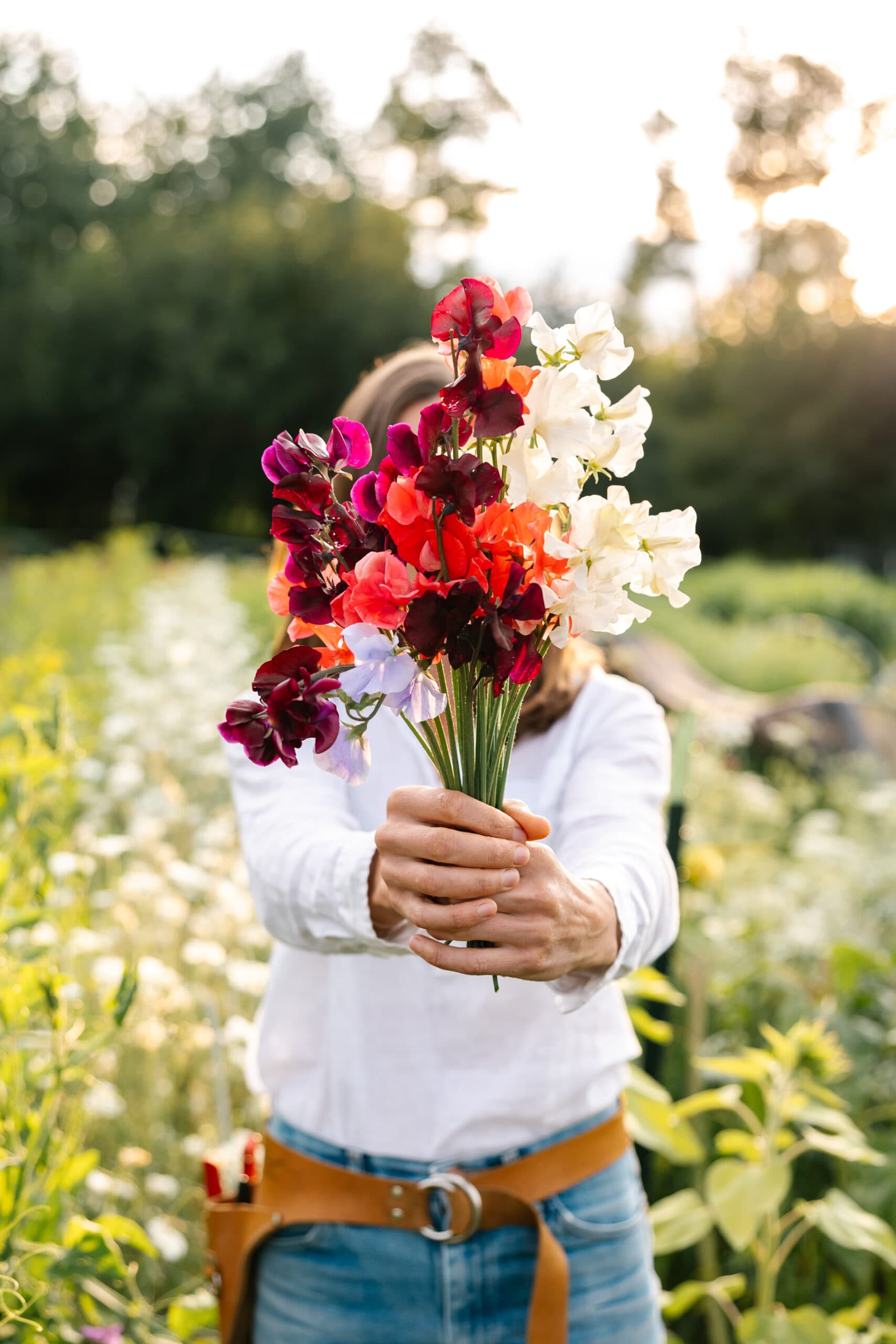
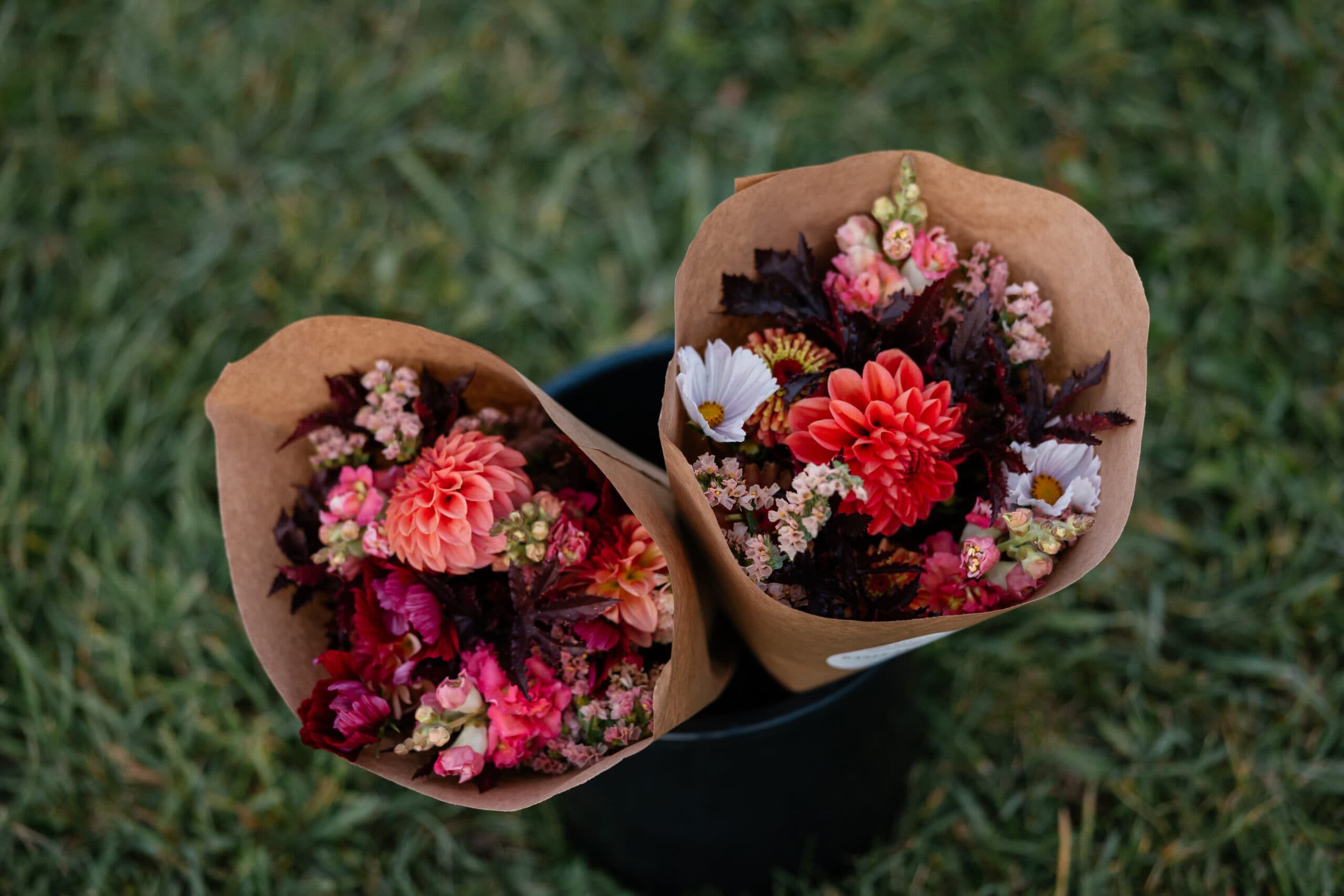
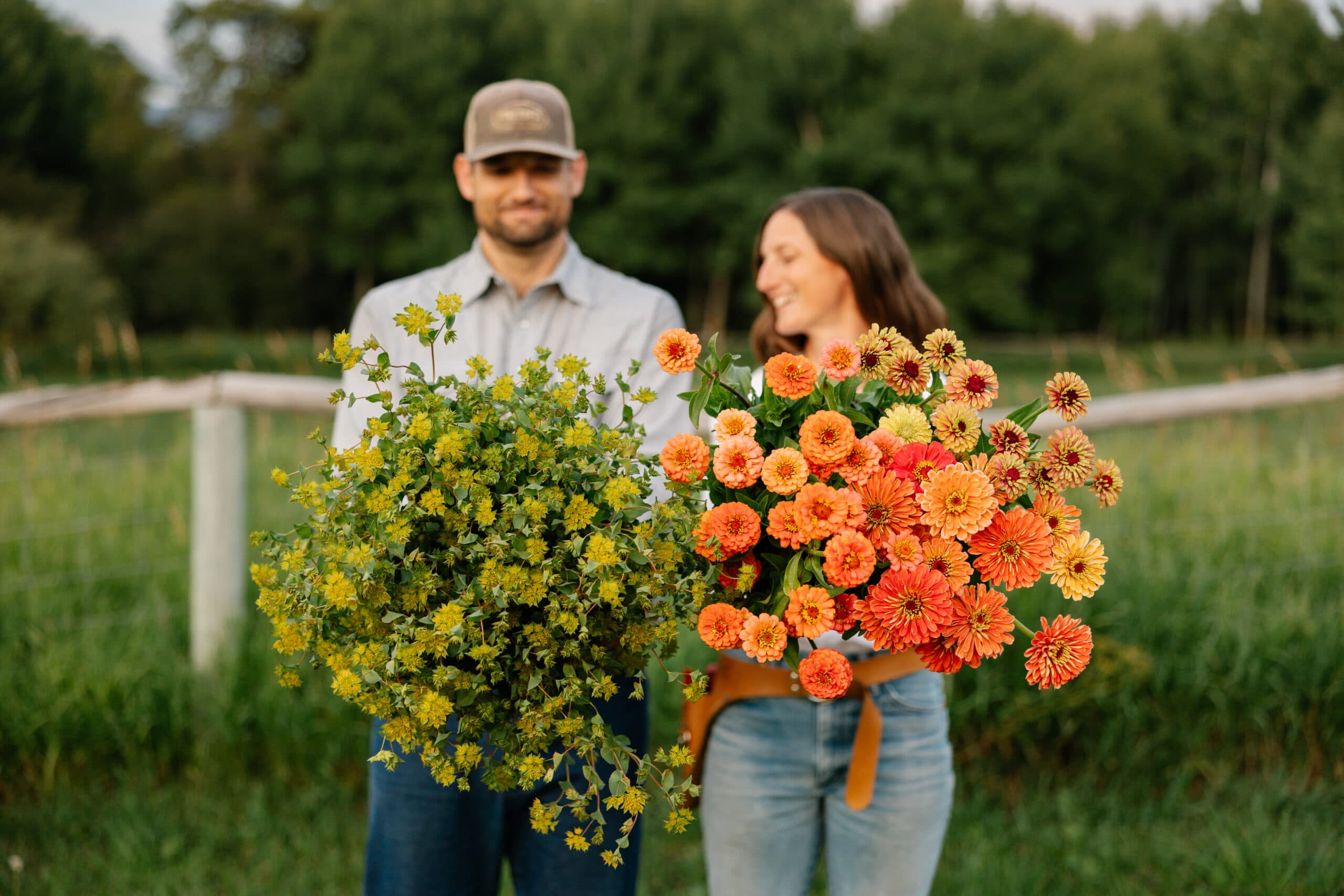
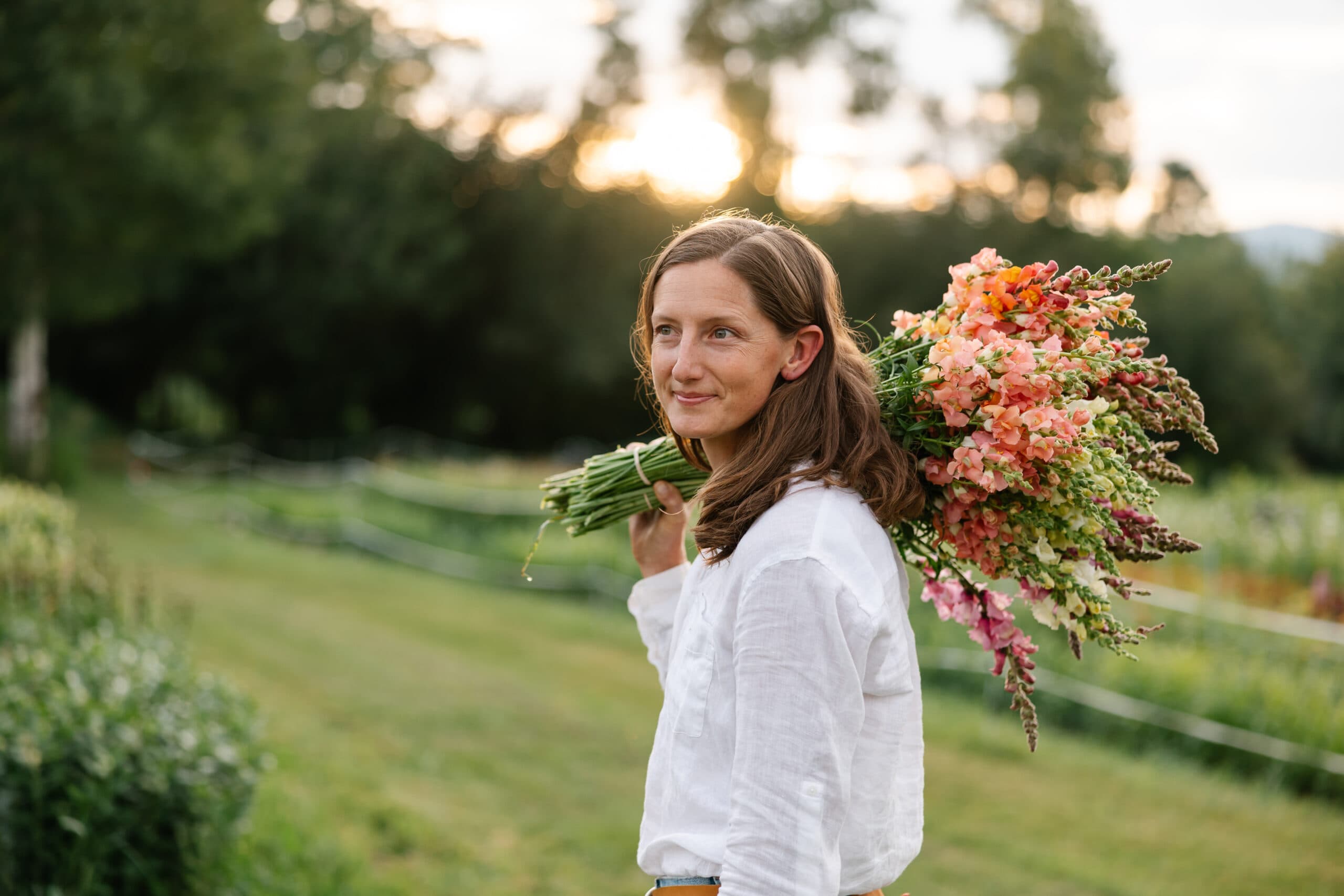
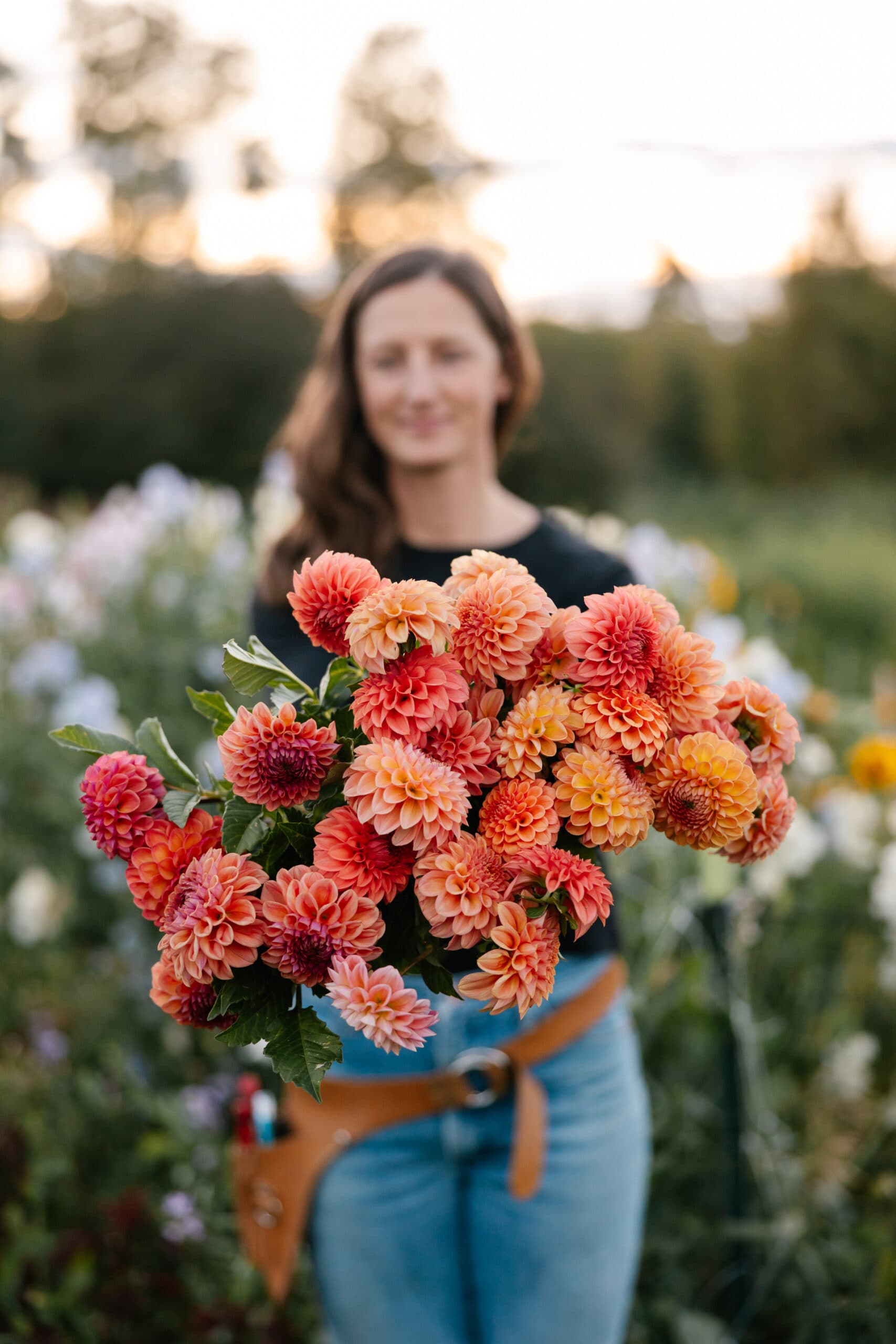
To learn more, visit Basin Flowers’ website.

